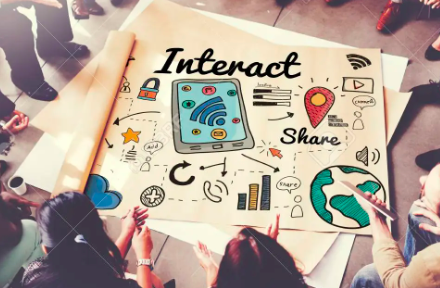After reading the post Our Need to Interact, I better understood the need for interaction in learning. I think that interaction in education is a significant help in constructing students’ knowledge. We know three general interaction relationships exist in the learning environment: the interaction between teachers and students and the interaction between teachers and students with the learning content from the post Interaction. However, the ultimate purpose of all interactive relationships is to return to the interaction between students and learning content so that students can better build knowledge. Therefore, the videos I found for students contain much interactivity, such as 5 Tips to Improve Your Critical Thinking, Five Simple Strategies to Sharpen Your Critical Thinking, etc. When watching the videos, students will instantly review and evaluate their abilities according to the video content at different stages. At the same time, students can also get timely feedback by watching instructional videos with practice. They can either watch videos and do questions in the classroom or on their mobile phones anytime, anywhere.

Properly adding the mechanism of instant feedback in learning can improve the interactivity of learning. When students can feel their improvement firsthand, their engagement will increase. Not only that, an interactive learning environment happens to enhance students’ critical thinking skills. Because in the interactive learning process, unlike in the traditional teaching environment, most students need to think deeply and analyze past mistakes before finding the correct answer. Students can improve their critical thinking by revising and overturning their views and perceptions.

Last but not least, I highly recommend that students participate in face-to-face activities, such as taking turns discussing the same topic or even debating. Students need to question and refine their own and opponents’ arguments in a short time, as well as think about different coping strategies. These activities that are not restricted to the number of participants can improve students’ logical thinking and expression ability while improving each student’s participation.
It is better to debate a question without settling it than to settle a question without debating it.
Joseph Joubert



